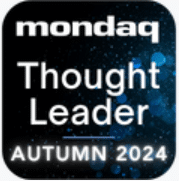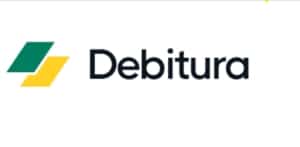Introduction
Financial technology, generally referred to as “Fintech”, is a thriving business that applies technology. Leveraging innovation to improve financial services, cut transaction costs, and increase access to financing. Smartphones enabled financial breakthroughs like mobile banking. Fintech is disrupting traditional financial markets, including capital market trade. The banking industry prioritizes technology innovation more than ever before.
This article examines the meaning and characteristics of fintech, legal and regulatory frameworks and types of fintech licenses in Nigeria.
Meaning of Fintech
The term “Fintech” refers to financial technology, which encompasses all types of technology used to provide financial services to businesses and consumers. Fintech is the combination of finances and technology. It creates and promotes new financial products, institutions, markets, and technologies. Fintech provides people with opportunities to decrease intermediaries, lower costs, and increase transparency in accessing financial services.
This encompasses a wide range of offerings, such as online banking, mobile payments, lending, digital wallets, savings/investment tools and financial management applications. Fintech businesses use cutting-edge technology such as artificial intelligence, blockchain, and big data to provide novel financial products and services that are intended to be more efficient, accessible, and user-friendly than traditional financial institutions.
Characteristics of Fintech
Some of the characteristics of Fintech include:
- Fintech focuses on innovation rather than disruption. “Disruptive” is the most overused term in FinTech. While some FinTech operations are undoubtedly disruptive, disruption is not required. but Innovation.
- Fintech must focus on both process and technology. While technology is plainly necessary to address the problem being solved or the opportunity being generated, users will be required to adapt critical procedures, regardless of whether the customer is an end consumer or a business. Successful Fintech consider how the change being implemented will affect end customers and how they will adjust.
- Fintech provide services to B2C, B2B, and hybrid enterprises (with components of both). FinTech solutions are often “one-to-many” solutions, which means they may be applied to a wide range of businesses rather than being custom-built and employed by just one. Those applications of technology belong in a different category.
- Fintech are frequently enhancements to an existing product or process that make it better, faster, and occasionally less expensive, rather than something entirely new.
- Fintech are typically founded by persons who work in financial services and perceive a better/newer way to accomplish something or uncover a completely new solution inside their business. However, like with everything, there are no absolutes; some Fintech are founded by people outside of the business. These FinTech pioneers are frequently accompanied by industry veterans who can provide intimate knowledge of procedures, rules, and so on. The Fintech industry attracts and depends on people who enjoy creating and innovating rather than running current firms or working only within existing or traditional businesses. People who work in FinTech are entrepreneurs or intrapreneurs, not business operators, and they are more comfortable with risk.
Legal and Regulatory Framework of Fintech in Nigeria
Fintech is governed by multiple regulatory frameworks due to its complex nature. The legal and regulatory framework can be viewed from both legal and institutional perspectives.
The laws and regulations applicable to fintech include:
- Central Bank of Nigeria Act, 2007
- Banks and Other Financial Institutions Act, 2020
- Nigerian Communications Act, 2003
- Business Facilitation Miscellaneous Provision, Act 2023
- Nigerian Exchange Technology Board Listing Rules, 2022
- Nigeria Startup Act, 2022
- NCC Value Added Services and Aggregator Framework, 2018
- SEC Crowdfunding Rules, 2021
- Moneylenders Laws of the respective states in Nigeria (this line item apart, all laws and regulations mentioned in this section are federal laws)
- NITDA Nigeria Cloud Computing Policy, 2019
- Companies and Allied Matters Act, 2020
- Investments and Securities Act, 2007
- Federal Competition and Consumer Protection Act, 2018 and Federal Competition and Consumer Protection Commission regulations
- National Insurance Commission Act
- Money Laundering (Prohibition) Act, 2011 (as amended)
- Corrupt Practices and other Related Offences Act, 2000
- Economic and Financial Crimes Commission (Establishment, Etc.) Act, 2004
- Terrorism (Prevention) Act, 2011 (as amended)
- Cybercrimes (Prohibition, Prevention, Etc.) Act, 2015
- Nigeria Data Protection Act, 2023
- Nigeria Data Protection Regulations, 2019
- NDPR Implementation Framework, 2020
- Foreign Exchange (Monitoring and Miscellaneous Provisions) Act, 1995
- Nigerian Investment Promotion Commission Act, 2004
- National Office for Technology Acquisition and Promotion (NOTAP) Act, 1992
- Finance Act, 2023 (as amended)
- Nigerian Deposit Insurance Commission Act, 2006
- Financial Reporting Council of Nigeria Act. 2011
As a primary regulator of Fintech in Nigeria, the Central Bank of Nigeria has established the following guidelines for its operations:
- CBN Operational Guidelines for Open Banking in Nigeria, 2023;
- CBN Framework for Regulatory Sandbox Operations, 2020 (“Sandbox Operations Framework”);
- CBN Guidelines on Mobile Money Services in Nigeria, 2015;
- CBN Guidelines on Operations of Electronic Payment Channels in Nigeria, 2020;
- CBN Guidelines for Licensing and Regulation of Payment Service Banks in Nigeria, 2018;
- CBN Regulatory Framework for the Use of Unstructured Supplementary Service Data Financial Services in Nigeria, 2018;
- CBN Regulation for Bill Payments in Nigeria, 2018;
- CBN Risk-Based Cyber-Security Framework and Guidelines for Deposit Money Banks and Payment Service Providers, 2018;
- CBN Microfinance Policy, Regulatory and Supervisory Framework, 2011;
- CBN Revised Guidelines for Finance Companies in Nigeria, 2014;
- CBN Guidelines on Operations of Electronic Payment Channels in Nigeria, 2016;
- CBN Guidelines on International Mobile Money Remittance Service in Nigeria, 2015;
- CBN Guidelines on International Money Transfer Services in Nigeria, 2014;
- CBN Regulation on Electronic Payments and Collections for Public and Private Sectors in Nigeria, 2019;
- CBN Regulation for Direct Debit Scheme in Nigeria, 2018; and
- CBN Regulatory Guidelines on the e-Naira, 2021.
Types of Fintech Licenses in Nigeria
There are various types of fintech licenses that a company can apply for in Nigeria. The nature of the company’s business determines this. These licenses include the following:
- Payment Service Provider (PSP) License:
The Central Bank of Nigeria grants the Payment Service Provider (PSP) License, allowing companies to provide electronic payment solutions, internet banking, and mobile money.
To obtain a Payment Service Provider license, the following steps must be taken:
Incorporation and Legal Structure
- The applicant must be duly incorporated as a company in Nigeria.
- The legal structure and corporate governance must align with the requirements stipulated by the CBN.
- The objectives and authorized share capital of the company must fit into the exact category of license to be applied for
- Directors, shareholders, and key management personnel must meet the “fit and proper” criteria set by the CBN. This involves assessing their integrity, competence, and financial soundness. They may be interviewed by relevant security agencies for a background check.
Financial Requirements
- The cost of setting up a payment service provider company depends on the category of license.
- Major financial obligations include the shareholders’ funds, which must be deposited with the CBN during the pendency of the application.
- Once the application is approved, the funds are returned to the owner with any accruable interest.
- For example:
- PSSP or PTSP: Deposit NGN100 Million with the CBN.
- MMO and Switching Companies: Deposit a minimum of NGN2 Billion each with the CBN
Documentary Requirements
- Incorporation documents: Certificate of incorporation from the Corporate Affairs Commission (CAC).
- Tax clearance: 3 years of tax clearance certificates for the company.
- Share structure: Details of the shareholding structure.
- Board and management details: CVs of board and management members.
- Organizational structure: Organogram and number of employees.
- Business plan: A detailed 5-year business plan and financial projections.
- IT policies: Policies on privacy, data protection, backup, security, etc.
- Risk management framework: Enterprise Risk Management Framework.
- Disaster recovery plan: Contingency and Disaster Recovery Plan.
- Draft agreements: Draft agreements with technical partners, banks, merchants, telcos, etc.
- Application fee: Non-refundable application fee of NGN100,000 paid via RTGS
Application Process
- Pre-Application Engagement: Engage with the CBN or experienced consultants for clarification on requirements.
- Submission of Application: Submit the formal application, accompanied by all necessary documents, to the CBN.
- Payment of Shareholder Funds: Deposit the required shareholders’ funds immediately after submitting the application.
- Due Diligence and Background Checks: The CBN conducts due diligence and background checks on the directors, shareholders, and key management personnel.
- On-Site Inspection: The CBN may conduct an on-site inspection of the applicant’s premises.
- Review and Approval: The CBN reviews the application, taking into consideration all relevant factors, including the applicant’s financial stability, compliance with guidelines, and adherence to technology standards.
- Post-Licensing Obligations: License holders are required to comply with ongoing reporting requirements, risk management practices, and any additional guidelines issued by the CBN.
By meeting these requirements and submitting the necessary documents, entities can secure a Payment Service Provider license in Nigeria, facilitating their participation in the country’s growing fintech sector.
Payment Service Provider license is divided into different categories which include:
- Switching and Processing License:
A switching and processing license, issued by the CBN, allows companies to conduct activities like card processing, transaction clearing, and settlement agents, enabling them to run a payment gateway linking various payment channels in Nigeria. Example of switching and processing fintech companies in Nigeria include Flutterwave, Interswitch and Paystack.
To obtain a switching and processing license, the following steps must be taken:
Capital Requirements
- Minimum shareholders’ funds of ₦2 billion unimpaired by losses
- Refundable escrow deposit of ₦2 billion into the CBN PSP Share Capital Deposit Account, paid as a lump sum
Licensing Process
- A written application to the Director, Payments System Management Department, Central Bank of Nigeria, Abuja, together with proof of payment and other required documents.
- Application fee of ₦100,000
- Validity period determined by CBN upon satisfactory performance
Documentary Requirements
- Incorporation documents
- 3 years of tax clearance
- Share structure, number of employees, and organogram
- Functional physical and digital addresses
- Board composition and personal details of board members and top management
- 5-year business plan and financial projections
- Features of the switching and processing scheme, security architecture, and process flows
- IT policies (privacy, data protection, backup, security, etc.)
- Risk management, internal control, KYC/AML procedures, fraud detection plan, consumer protection policy
- Executed agreements with technical partners, banks, merchants, etc.
Permissible Activities
- Switching
- Card processing
- Transaction clearing and settlement agent services
- Non-bank acquiring services
- Activities of super-agents, payment terminal service providers (PTSPs), and payment system service providers (PSSPs)
- Mobile Money Operator (MMO) License:
The Mobile Money Operator License, issued by the CBN, allows companies to offer mobile money services like electronic wallets, funds transfers, and bill payments.
To obtain a Mobile Money Operator license, the following steps must be taken:
Capital Requirements
- Minimum issued share capital of ₦2 billion unimpaired by losses
- Refundable escrow deposit of ₦2 billion into the CBN PSP Share Capital Deposit Account
Application Process
- Application letter to the Director, Payments System Management Department, CBN
- Non-refundable application fee of ₦100,000 paid via RTGS
Documentary Requirements
- Evidence of formation of the consortium/company (Certificate of Incorporation)
- Consortium/company profile and contact details
- Memorandum and Articles of Association
- Shareholding structure
- Forms C02 (Return on Allotment of Shares) and C07 (Particulars of Directors)
- CVs of board and management
- Organizational structure and organogram
- Business plan with details on:
- Nature of business
- Scheme features
- Security features
- 3-year financial projections
- Transaction/customer charges
- Profit sharing agreement
- IT policies (privacy, data, backup, security, etc.)
- Enterprise Risk Management Framework
- Contingency and Disaster Recovery Plan
- Draft agreements with partners (technical, banks, merchants, telcos, etc.)
- 3 years tax clearance certificates for consortium members
- Project deployment plan
The application process involves an initial Approval-in-Principle (AIP) stage, followed by the final license issuance within 2-3 months after meeting all requirements.
- Payment Solution Service Provider (PSSP) License:
The NCC and CBN issue the Payment Solution Service Provider License, allowing companies to provide payment processing and switching services for electronic transactions.
To obtain a Payment Solution Service Provider license, the following steps must be taken:
Capital Requirements
- Minimum shareholders’ funds of ₦100 million unimpaired by losses
- Refundable escrow deposit of ₦100 million into the CBN PSP Share Capital Deposit Account
Licensing Process
- Application letter to the Director, Payments System Management Department, CBN
- Non-refundable application fee of ₦100,000 paid via RTGS
- Validity period determined by CBN upon satisfactory performance
- Final license fee of ₦1 million to be paid before issuance of the commercial license
Documentary Requirements
- Certificate of Incorporation from the Corporate Affairs Commission (CAC)
- Memorandum and Articles of Association with the object clause limited to PSSP activities
- 3 years of tax clearance certificates for the company
- Company profile detailing current business operations, products, and services
- Shareholding structure and details of directors/management (CVs, Forms C02 and C07)
- Organizational structure and number of employees
- 5-year business plan and financial projections
- IT policies (privacy, data protection, backup, security, etc.)
- Enterprise Risk Management Framework
- Contingency and Disaster Recovery Plan
- Draft agreements with technical partners, banks, merchants, etc.
The application process involves an initial Approval-in-Principle (AIP) stage, followed by the final license issuance within 6 months after meeting all requirements and paying the final license fee.
Compliance with CBN regulations, including data protection, KYC/AML, and consumer protection, is also crucial for obtaining and maintaining the PSSP license in Nigeria.
- Payment Terminal Service Provider (PTSP) License:
The Nigerian Communications Commission (NCC) in collaboration with the CBN grants the Payment Terminal Service Provider (PTSP) License, allowing companies to offer payment terminal and POS services.
To obtain a Payment Terminal Service Provider license, the following steps must be taken:
Capital Requirements
- Minimum shareholders’ funds of ₦100 million unimpaired by losses
- Refundable escrow deposit of ₦100 million into the CBN PSP Share Capital Deposit Account
Licensing Process
- Application letter to the Director, Payments System Management Department, CBN
- Non-refundable application fee of ₦100,000 paid via RTGS
- Final license fee of ₦1 million to be paid before issuance of the commercial license
Documentary Requirements
- Certificate of Incorporation from the Corporate Affairs Commission (CAC)
- Memorandum and Articles of Association with the object clause limited to PTSP activities
- 3 years of tax clearance certificates for the company
- Company profile detailing current business operations, products, and services
- Shareholding structure and details of directors/management (CVs, Forms C02 and C07)
- Organizational structure and number of employees
- 5-year business plan and financial projections
- IT policies (privacy, data protection, backup, security, etc.)
- Enterprise Risk Management Framework
- Contingency and Disaster Recovery Plan
- Draft agreements with technical partners, banks, merchants, etc.
- Payment Card Industry Data Security Standard (PCI-DSS) certificate
- Payment Application Data Security Standard (PA-DSS) or compliance with CBN IT Standards for Solution Development certificate
The application process involves an initial Approval-in-Principle (AIP) stage, followed by the final license issuance within 6 months after meeting all requirements and paying the final license fee.
Compliance with CBN regulations, including data protection, KYC/AML, and consumer protection, is also crucial for obtaining and maintaining the PTSP license in Nigeria.
- Payment Service Bank (PSB) License
PSBs are licensed by the Central Bank of Nigeria (CBN) to leverage technology and agency banking to provide financial services to the unbanked and underbanked population, especially in rural and hard-to-reach areas. The main objective is to enhance financial inclusion by increasing access to deposit products and payment/remittance services.
To obtain a Payment Service Bank license, the following steps must be taken:
Capital Requirements
- Minimum shareholders’ funds unimpaired by losses of ₦5 billion
Licensing Process
- Application made to the Director, Payments System Management Department, CBN
- Non-refundable application fee of ₦500,000
- Final license fee of ₦2 million to be paid before issuance of the commercial license
Documentary Requirements
- Certificate of Incorporation from the Corporate Affairs Commission (CAC)
- Memorandum and Articles of Association with the object clause limited to PSB activities
- 3 years of audited financial statements
- Shareholding structure and details of directors/management (CVs, Forms C02 and C07)
- Organizational structure and number of employees
- 5-year business plan and financial projections
- IT policies (privacy, data protection, backup, security, etc.)
- Enterprise Risk Management Framework
- Contingency and Disaster Recovery Plan
- Draft agreements with technical partners, banks, merchants, telcos, etc.
- Evidence of at least 25% of access points to be located in rural/underserved areas
- Proof of partnership with card scheme operators (e.g. Visa, Mastercard)
The application process involves an initial Approval-in-Principle (AIP) stage, followed by the final license issuance within 6 months after meeting all requirements and paying the final license fee.
Compliance with CBN regulations, including data protection, KYC/AML, consumer protection, and financial inclusion targets, is crucial for obtaining and maintaining the PSB license in Nigeria.
- Alternative Lending/Digital Credit Licenses
Alternative lending or digital credit refers to fintech-based lending platforms that provide quick, non-collateralised micro-credit facilities, as opposed to traditional loan application processes. These platforms are commonly known as “loan apps” and can be operated by licensed moneylenders, banks, and finance companies.
To obtain an Alternative Lending/Digital Credit license in Nigeria, the requirements are:
For Money Lenders License
- Application to the Home Affairs Ministry in states like Lagos through the state Moneylenders law
- Fill Moneylenders Ordinance Form B and pay application fee
- Yearly renewal process required
For Finance Company License
- Application to the Central Bank of Nigeria (CBN)
- Minimum share capital of ₦100 million
- Submit comprehensive IT policy, 5-year business plan, Enterprise Risk Management plan, and Dispute Resolution Framework
- Detailed information about technical/IT service providers
Additional Requirements
- Compliance with Nigeria Data Protection Regulation (2019) for data protection
- Registration with Federal Competition and Consumer Protection Commission (FCCPC) under their Limited Interim Regulatory/Registration Framework and Guidelines for Digital Lending, 2022
- Robust cybersecurity measures to protect customer data
- Thorough customer due diligence to prevent fraud
The key documents required include:
- Certificate of incorporation
- Tax clearance certificates
- Shareholding structure and CVs of directors/management
- Organizational structure and number of employees
- Business plan and financial projections
- IT policies (privacy, data protection, security, etc.)
- Risk management and compliance frameworks
Meeting these capital, regulatory, and operational requirements is essential to obtain an Alternative Lending/Digital Credit license from either the state government or the Central Bank of Nigeria. The license allows companies to legally provide digital lending services in Nigeria.
- Digital Crowdfunding Intermediary License
A Digital Crowdfunding Intermediary is an entity that facilitates transactions involving the offer or sale of securities through a crowdfunding portal or platform.
Licensing Process
- Minimum paid-up share capital of ₦100,000,000 (One Hundred Million Naira)
- Application to the Securities and Exchange Commission (SEC) using the appropriate forms.
- Non-refundable application fee and final license fee to be paid as prescribed by the SEC.
Documents Required
- Certificate of Incorporation from the Corporate Affairs Commission (CAC)
- Memorandum and Articles of Association
- Audited accounts of the applicant
- Company profile, business plan, and operational manual
- Details of the crowdfunding system to be adopted
- Proposed brand name and domain names
- Fidelity Insurance Bond covering at least 20% of the minimum capital
Additional Requirements
- Compliance with the Federal Competition and Consumer Protection Commission (FCCPC) guidelines for digital lending.
- Compliance with the Nigeria Data Protection Regulation (2019) for data protection
The application process involves an initial Approval-in-Principle (AIP) stage, followed by the final license issuance within 6 months after meeting all requirements and paying the final license fee. Compliance with these regulatory requirements is crucial for obtaining and maintaining the Digital Crowdfunding Intermediary License in Nigeria.
- Regulatory Sandbox
A Regulatory Sandbox is a controlled environment where fintech companies can test innovative products, services, delivery channels or business models under the supervision of the regulator. It allows for live testing of new financial technologies and services in a live environment, with appropriate safeguards and oversight.
Application Process
- Applications are made on invitation from the Central Bank of Nigeria (CBN)
- Applicants submit the following documents:
- Board approval (where applicable)
- Incorporation documents, company profile and contact details
- CVs of board members and management
- Project plan, business proposal and outcomes
- Strategy for sandbox trials and AML/CFT policy
- Proof of intellectual property rights
- The CBN reviews applications and informs eligible applicants within 45-60 working days
- Successful applicants receive a Letter of Approval to test their innovation in the sandbox
Participants must comply with the CBN’s operational requirements, including:
- Filing requirements
- Reporting requirements during the sandbox testing
- Exit conditions and approval for expiration
- Evaluation and review of the license
- The CBN may relax specific regulations during the sandbox period
- Upon exit, participants must meet all relevant legal and regulatory requirements
Conclusion
The requirements across these licenses include minimum capital, application and licensing fees, incorporation documents, financial statements, IT policies, risk management frameworks, and regulatory compliance. Obtaining the appropriate fintech license is crucial for companies to legally operate in Nigeria’s growing fintech sector.
Note: The content of this article is anticipated to provide a general guide to the subject matter. Specialist advice should be sought about your specific circumstance.
By Adeola Oyinlade & Co.
Adeola Oyinlade & Co.; a leading full-service law firm in Nigeria provides help and offers advisory to both local and foreign clients in the fintech sector and other related matters in Nigeria.
Need help? Kindly contact us using the details below:
Email: [email protected]
Mobile: +234 803 826 7683 / +234 802 686 0247







